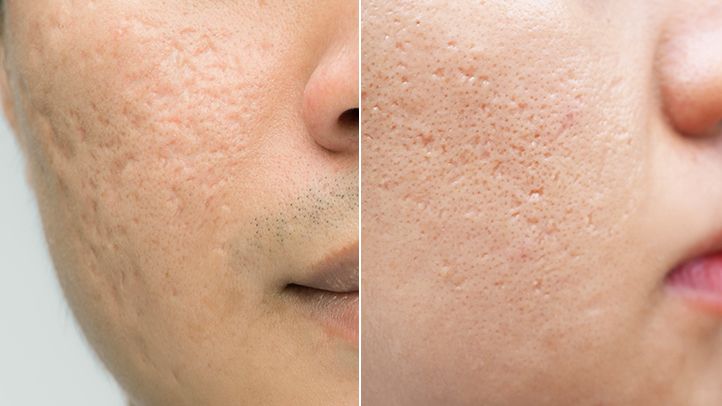
Acne is a common skin condition that affects millions of people worldwide. While many individuals successfully manage their acne breakouts, some are left with a lingering reminder in the form of acne scars. These scars can be a source of distress and impact a person’s self-esteem. In this article, we will explore the causes of acne scars, various treatment options available, and essential tips for managing and preventing them.
Causes of Acne Scars:
Acne scars develop as a result of the body’s natural healing process after severe acne breakouts. When the skin experiences inflammation due to acne, the body attempts to repair the damaged tissue. However, this healing process is not always flawless, leading to the formation of scars.
Treatments for Acne Scars:
Fortunately, there are several effective treatments available to minimize the appearance of acne scars, although complete removal may not always be possible. The choice of treatment depends on the type and severity of the scars. Here are some common options:
- Topical Treatments: Over-the-counter creams containing ingredients like retinoids, vitamin C, and hyaluronic acid can improve skin texture and promote collagen production, reducing the appearance of mild scars.
- Chemical Peels: A chemical solution is applied to the skin, causing the top layer to peel off. This promotes the growth of new skin and can improve the appearance of mild scars. Visit a Skin specialist in Lahore to know more.
- Microdermabrasion: This procedure exfoliates the skin’s surface using a device that sprays tiny crystals. It can help improve the texture of shallow scars.
- Laser Therapy: Various laser treatments, such as fractional laser and CO2 laser, can stimulate collagen production and target scar tissue, resulting in smoother skin.
- Dermal Fillers: Injectable fillers can temporarily raise atrophic scars to the level of the surrounding skin, making them less noticeable.
- Microneedling: This procedure involves using fine needles to create controlled micro-injuries in the skin, stimulating collagen production and improving scar texture.
- Surgical Procedures: For severe scars, surgical techniques like punch excision, subcision, and skin grafting can physically remove or modify scar tissue.
Tips for Managing and Preventing Acne Scars:
Prevention and early intervention are key to minimizing the development of acne scars. Here are some tips to help manage and prevent acne scars:
- Treat Acne Early: Effective acne management can prevent the formation of severe lesions that are more likely to lead to scarring.
- Avoid Picking and Squeezing: Picking at acne lesions can worsen inflammation and increase the risk of scarring. Hands-off is the best approach.
- Sun Protection: Always use sunscreen with at least SPF 30 to protect your skin from UV rays, which can exacerbate the appearance of scars.
- Healthy Lifestyle: A balanced diet, regular exercise, and sufficient hydration contribute to overall skin health.
- Gentle Skincare: Use mild cleansers and avoid harsh scrubs that can irritate the skin.
- Consult a Dermatologist: If you’re concerned about acne scars, consult a dermatologist in shifa international hospital for personalized advice and treatment recommendations.
While acne scars can be a lasting reminder of past breakouts, there are various treatments available to minimize their appearance and improve skin texture. By understanding the causes, exploring treatment options, and following preventative measures, individuals can take control of their skin health and regain their confidence. If you’re struggling with acne or its aftermath, don’t hesitate to seek professional guidance from a dermatologist.